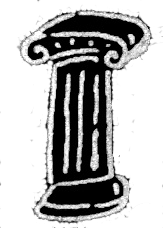Go Back Home Again (If You Dare)

Photo by Nathan Walker
My launch pad: the top floor of a turret in midtown Detroit. It was a brief stay, a small room and a bath I shared with another boarder, a woman I only once caught a glimpse of as I was winding up the stairs. No female visitors were tolerated in my room. Even then that seemed like a throw-back. But my parents were content. I befriended the three people who lived back of the garden in a carriage house. A tall, gangly-legged man who looked like central casting for a 1930s roué. He wore purple cravats and chain-smoked viciously acrid French cigarettes: Gitanes. The two women were always squabbling. One was a doctor, forty-ish but washed-out pretty. The other was a stay-at-home drunk. I felt like I was living a Truman Capote story. And I was sad to leave.Then I was at the University of Chicago. And I felt that I had lost my home. Forever. I had always planned to make the break, to emigrate from Detroit. I was living in Hyde Park, a tiny university town ghetto squeezed into the Chicago South Side with its tongue hanging over Lake Michigan. My friend Robert, who was to die in a horrible accident the next year, wrote asking what the University of Chicago was like. I responded: first, rid yourself of all clothes but your worst pair of jeans and shabbiest shirt; second, find the most leftist political club and join it; third, go into psychoanalysis because you are depressed. Then you will fit in.It was a barrack home. As always the library became my refuge. And there was the T-hut, where you could get a beer if you were sly, eat something edible, and meet friends. Those two places became, dividedly, my home. It was altogether a raft of loneliness. But I chalked it up to adolescent angst. That time when you swing from giddy exhilaration to desperate, near wrist-slashing.When the acceptance letter from the Stanford School of Medicine arrived, I opened the envelope and could swear that a palm frond fall out, maybe a eucalyptus leaf. A new home was promised.At that life moment I got married. Home, until then a lone and singular space, was redefined. No one prepares you for this change, just as no one prepares you for being a parent..
"my sense of home began to collect images, memories, experiences as if housed in a mental scrapbook"
.There are the day-to-day struggles. I consider myself neat and, living-space-wise, a minimalist. I see her as the opposite. No serious clashes. The adjustments are never-ending. And home suddenly expands to include her friends, her family, her projects.Yet an inner sense of home remains. In the new surroundings my sense of home began to collect images, memories, experiences as if housed in a mental scrapbook.This was the time when I began to have friends who also had a home, a fixed abode. A place where their interests and eccentricities and decorative tastes—their lifestyle—was on display. Visiting them was almost like invading their dreams. As if home, in the physical and mental sense, is for each of us a sacred place. We may despoil it at will but its special sanctity stays with us.Everyone has some version of home, even when it has been displaced — burnt to the ground, denied because of imprisonment or forced relocation. There is a terror of the loss of home. A deep fear that transcends generations and may have been passed on in our genes. We fight to keep it, strive to build or renew it, long for it when we are away.And yet, as Pico Iver elucidated, home has many forms, many locations, many solid and also social versions. Home base is an almost innate sensibility.For many years my titular home has been my New York City address. But it has accrued not only the paraphernalia of things—from clothes to tchochkes—it has become the total assembly of my life. It is the message center whereby I maintain contact with friends and entities; it is a storehouse of memories and memorabilia. It is where my beloved pet dog lived his entire life and died. My half moon parrot, Joey, crooned and crowed and directed us to feed him the odd delicacies he craved (chicken!). It is where my two sons grew up (see my book, Father ∫ Son) and my wife and I grow older.Yet the fear of loss—the dread of losing home—is like the fear of death, only more tangible, more proximate. We count all our homely blessings.
